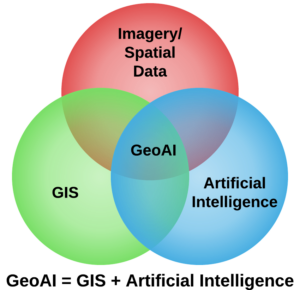
GeoAI—Geospatial Artificial Intelligence—combines the power of location-based data with artificial intelligence to solve complex challenges faster and smarter. By applying machine learning and deep learning to geospatial datasets, GeoAI enables advanced analysis, automation, and decision-making across sectors like urban planning, climate science, public health, and logistics.
From predicting urban growth to improving emergency response systems, GeoAI is transforming how professionals use spatial data. As digital transformation accelerates across Europe, GeoAI skills are becoming essential in both public and private sectors.

